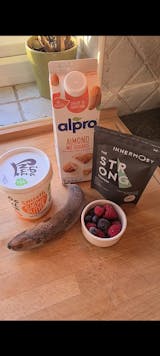If you’ve ever wondered what those colourful, stretchy, fun-looking things are in a bucket in the corner of the gym are, you’ve come to the right place. Resistance bands are a simple and low-impact way to exercise, they’re very versatile and affordable, and they can be used anywhere. In short, these bands are something you should definitely consider adding to your exercise regime.
What are resistance bands?
At their most basic, resistance bands are simply large rubber bands. Made of extra-stretchy and flexible rubber, they come in a seemingly endless series of sizes, colours, strengths and permutations, meaning there’s a resistance band for every exercise and body part out there. An exceptionally flexible and adaptable way to work out, they’re suitable for anyone, of any age or fitness level, at any time.
Resistance bands are ideal for using when you’re injured, as they’re effective at helping people to gradually build up their strength, often moving from one strength of band to another as they get stronger. This means resistance bands are also the perfect way to warm up for your workout in a gentle, controlled way.
One of the main benefits of resistance bands is how they’re great at building muscle endurance and helping to even out muscle imbalances, as they’re designed to train your muscles to last longer and perform better under strenuous conditions.
Why are resistance bands good to use and how do they work?
Simply put, resistance bands create resistance in order to get full muscle fibres recruitment - or, to work all of your muscle fibres as hard as possible. When you pull resistance bands with both hands, hold one between your ankles or keep one balanced around your thighs when you squat, the bands are forcing your muscle fibres to contract. This increases not only your muscular strength, but your bone strength.
While it’s eminently possible for resistance bands to make up an entire workout, they’re best used as part of a variety of exercises. Our bodies work best when they do a wide range of things, which means changing up not only the type and length of workouts you do, from yoga cardio, but changing up the tools you use as well. Always hop onto the treadmill at the gym without considering other options? Resistance bands are a great thing to add to your roster.
You’ve also probably seen athletes using resistance bands, often as a stretching tool to add resistance or to support limbs both before and after exercising.
How to use resistance bands

There are multiple kinds of bands for multiple types of exercise, and it’s important to choose the right one for your workout. The mostly commonly used resistance band are flat bands. Inexpensive, they have no handles or grips and come in many different levels of resistance.
What you might not know is that resistance bands tend to be colour coded depending on their strength. Typically the lighter the colour the lighter the resistance, and the darker the colour to more resistance the band has. You can also tell how sore your arms are going to be the next day - or how strong the band is - by how narrow or wide it is. The narrower the band, the less resistance it has.
Another common type of resistance band is the pull-up band. The main difference between these and flat bands is that they’re thicker, and so have more potential when it comes to muscle-building ability as they have more resistance. This gives them a certain advantage over flat bands.
There are also resistance tubes - the clue’s in the name that they’re tube-shaped rather than flat - which often come with handles at either end, figure-eight bands and lateral resistance bands.
Resistance bands mistakes
While resistance training is simple, there are some mistakes which are commonly made. All the movements you make must be controlled, otherwise you won’t get the full benefits of the band. You should be in control of the bands at all times, rather than vice versa. Don’t minimise the amount your muscle is contracting by concentrating the tension on the band rather than on your body.
It’s also very important to make sure you’re using the right resistance band for the right types of exercises. This means not only not using a small, light band for an exercise which needs a more intense one, but not using a heavy band in an area where this could cause injury or discomfort. An example of this would be using a thick, strong band for an exercise above the ankles, for a leg raise. Not only would this limit range of movement, but could cause stress in the hip area, leading to possible negative consequences.























